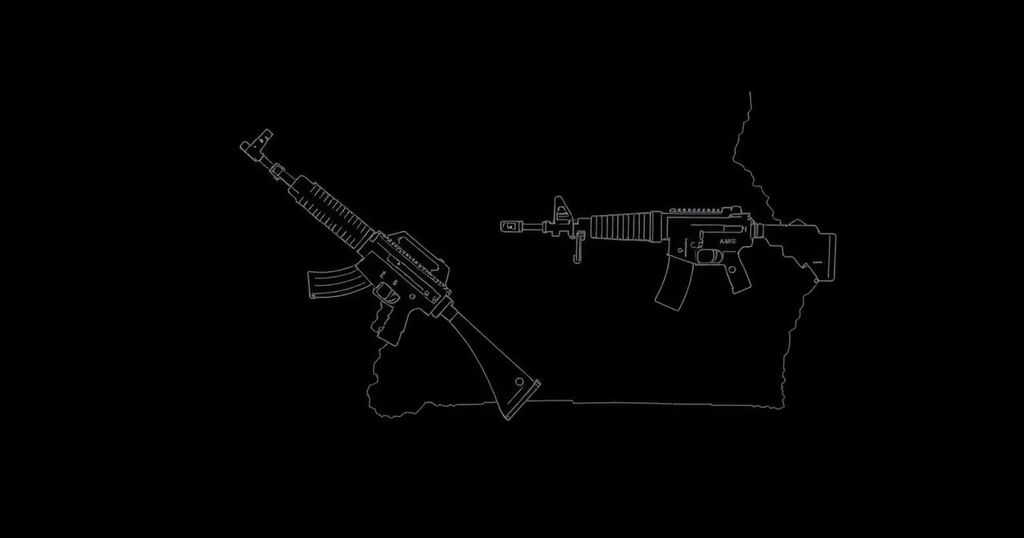Escalating Tensions: Egypt’s Arms Shipment to Somalia and the Regional Implications
Egypt’s recent arms shipment to Somalia heightens regional tensions with Ethiopia due to overlapping grievances related to the Grand Ethiopian Renaissance Dam and Somaliland’s territorial leasing. Critics fear this aggressive stance could undermine security and provoke an arms race. Despite international calls for restraint, the local governments grapple with longstanding disputes and delicate geopolitical ties, complicating regional stability efforts.
In recent developments, Egypt has dispatched a second arms shipment to the Somali federal government within a single month, eliciting criticism from Ethiopia, long considered Egypt’s rival in the region. The Egyptian foreign ministry has confirmed this shipment, emphasizing its purpose to enhance the capability of the Somali military in combating terrorism and ensuring national security and sovereignty. Ethiopian Foreign Minister Taye Atske Selassie has voiced his concerns regarding the arms deliveries, suggesting that external interventions could further destabilize an already precarious security environment, with the potential risk that these weapons might be misappropriated by terrorist entities. The tensions stem partly from an ongoing dispute between Egypt and Ethiopia over the controversial Grand Ethiopian Renaissance Dam (GERD), which significantly impacts Egypt’s water supply from the Nile. Furthermore, Somalia has recently expressed discontent towards Ethiopia over a memorandum regarding the leasing of coastal territory to Somaliland, perceived as an annexation initiative by Ethiopia. With these dynamics at play, the previously separate issues of water rights and territorial integrity have intertwined, prompting a closer alliance between Egypt and Somalia against Ethiopia. Expert Harry Verhoeven has cautioned that the geopolitical maneuvers by these nations come with inherent risks of escalating conflicts in an area already embroiled in numerous crises. Internally, East Africa faces significant humanitarian challenges, with over 20 million individuals displaced from their homes due to conflict and adverse climate conditions. Similarly, Somaliland, which has maintained autonomous governance since 1991, has warned that the increased arms flow could trigger an arms race, jeopardizing regional security. The memorandum agreed upon between Ethiopia and Somaliland has raised international eyebrows, with its vague stipulations leading to much speculation about its implications for regional stability. Ethiopia’s desire for port access and its aspirations to regain maritime status since becoming landlocked in the 1990s underscores the complexity of these negotiations, with Somalia fearing a potential partition of its territory. Ethiopia’s intelligence chief, Redwan Hussien, has even stated that Ethiopia’s interests extend beyond mere commercial intent, asserting, “Now is the right time to fulfil it and have access to the sea.” In response, Somali Foreign Minister Ahmed Moalim Fiqi has indicated that if Ethiopia proceeds with its plans, Somalia may consider supporting armed resistance against Ethiopia. Additionally, Egypt’s involvement in Somalia, particularly its military cooperation, has heightened Ethiopian vigilance, which perceives these actions as destabilizing influences in the region. Ethiopia’s assertions that Egypt harbors animosity toward it have been echoed by the nation’s officials, albeit without naming Egypt directly. Notably, the international community has expressed its disapproval of the Ethiopia-Somaliland agreement, with prominent entities like the Arab League and the European Union articulating their concerns. Attempts to mediate the situation have yet to yield progress, with proposals from Djibouti offering commercial but not military access to ports being overlooked, further complicating the dialogue.
The Horn of Africa has recently experienced increased tensions due to rivalries among Egypt, Ethiopia, and Somalia over water rights and territorial disputes. The construction of the Grand Ethiopian Renaissance Dam (GERD) by Ethiopia has sparked fears in Egypt, which relies heavily on the Nile for freshwater, regarding its water security. Meanwhile, Ethiopia’s memorandum with Somaliland has aggravated Somalia, which views it as a threat to its sovereignty. The arms shipment from Egypt to Somalia signifies a strategic alignment against Ethiopia’s expanding influence, reflecting deeper historical grievances and contemporary geopolitical complexities.
The arms shipment from Egypt to Somalia illustrates the intricate and heightened tensions within the Horn of Africa, where security interests and territorial claims collide. As Egypt seeks to bolster Somalia’s military capability to counter threats perceived from Ethiopia, the situation continues to evolve towards a potential arms race and further conflict. International entities have expressed their unease regarding recent developments, emphasizing the need for diplomatic solutions to avert escalation. The interplay between Ethiopia’s pursuit of maritime access, the ramifications of its arrangements with Somaliland, and Somalia’s strategies to safeguard its sovereignty will remain critical to the region’s stability moving forward.
Original Source: www.theguardian.com




Post Comment